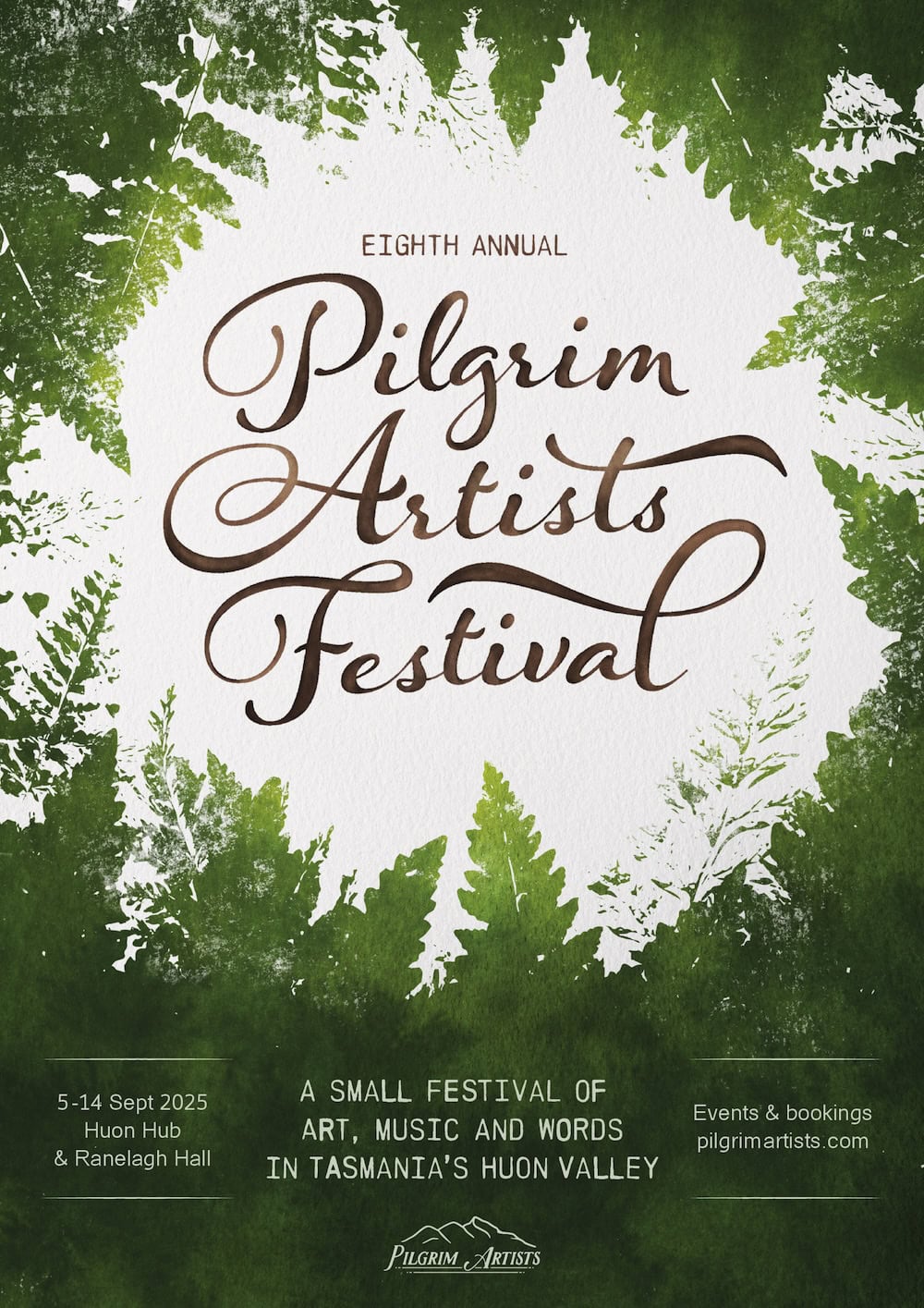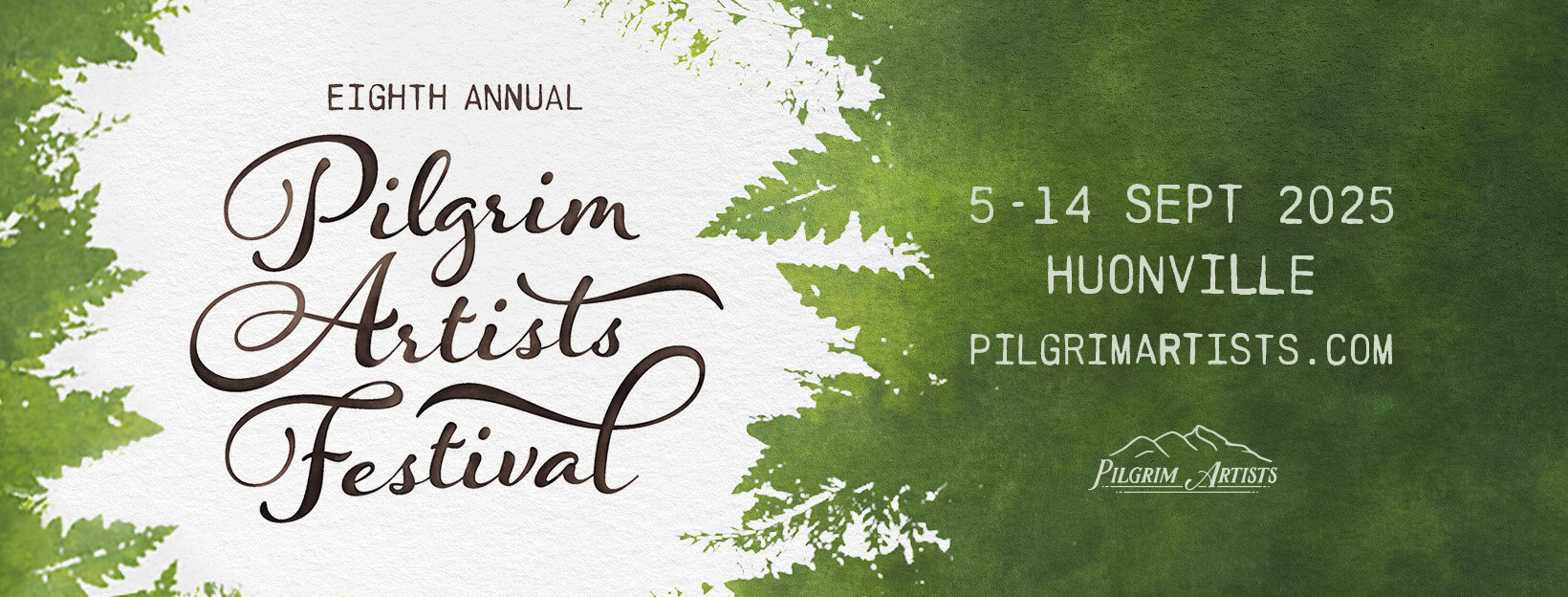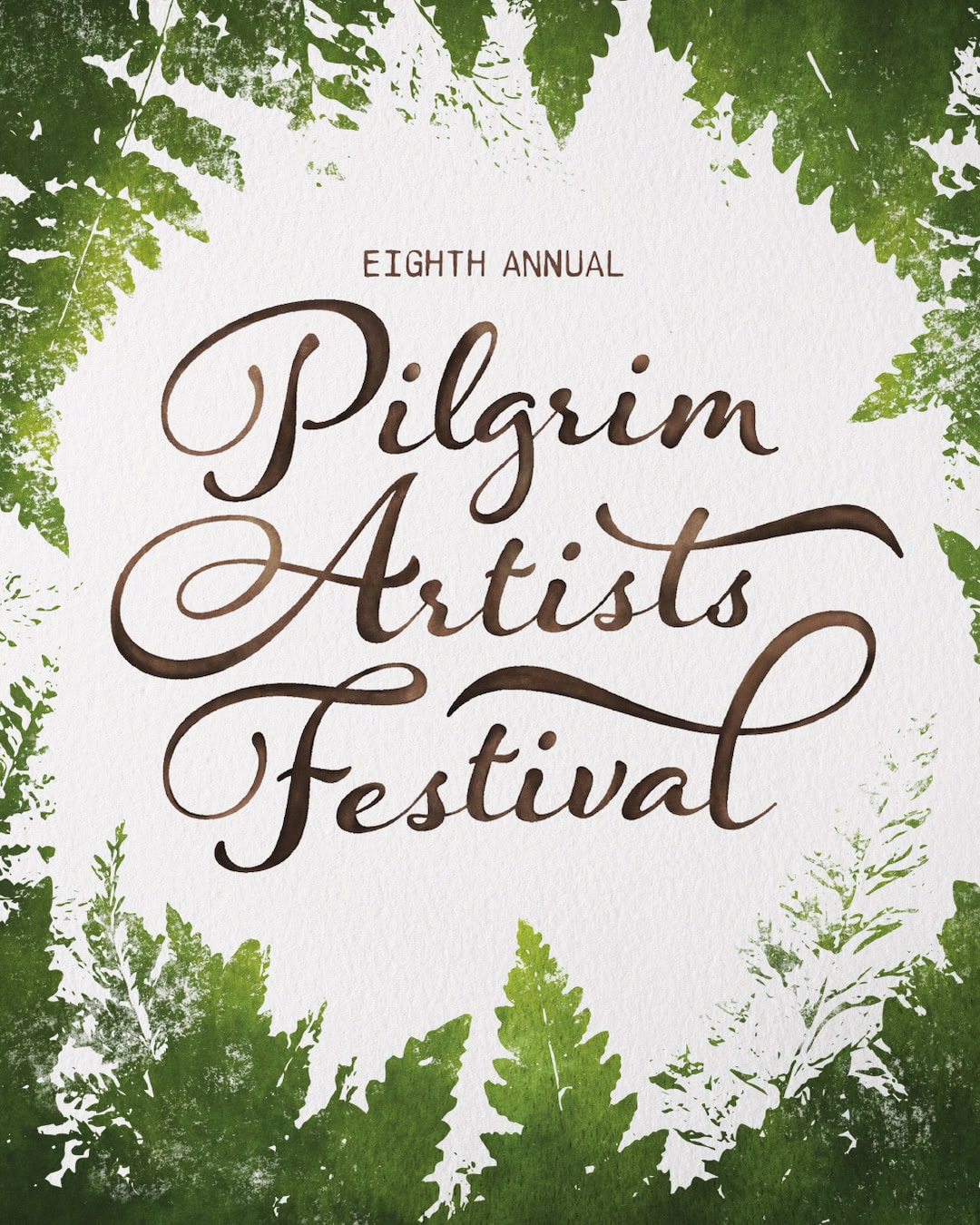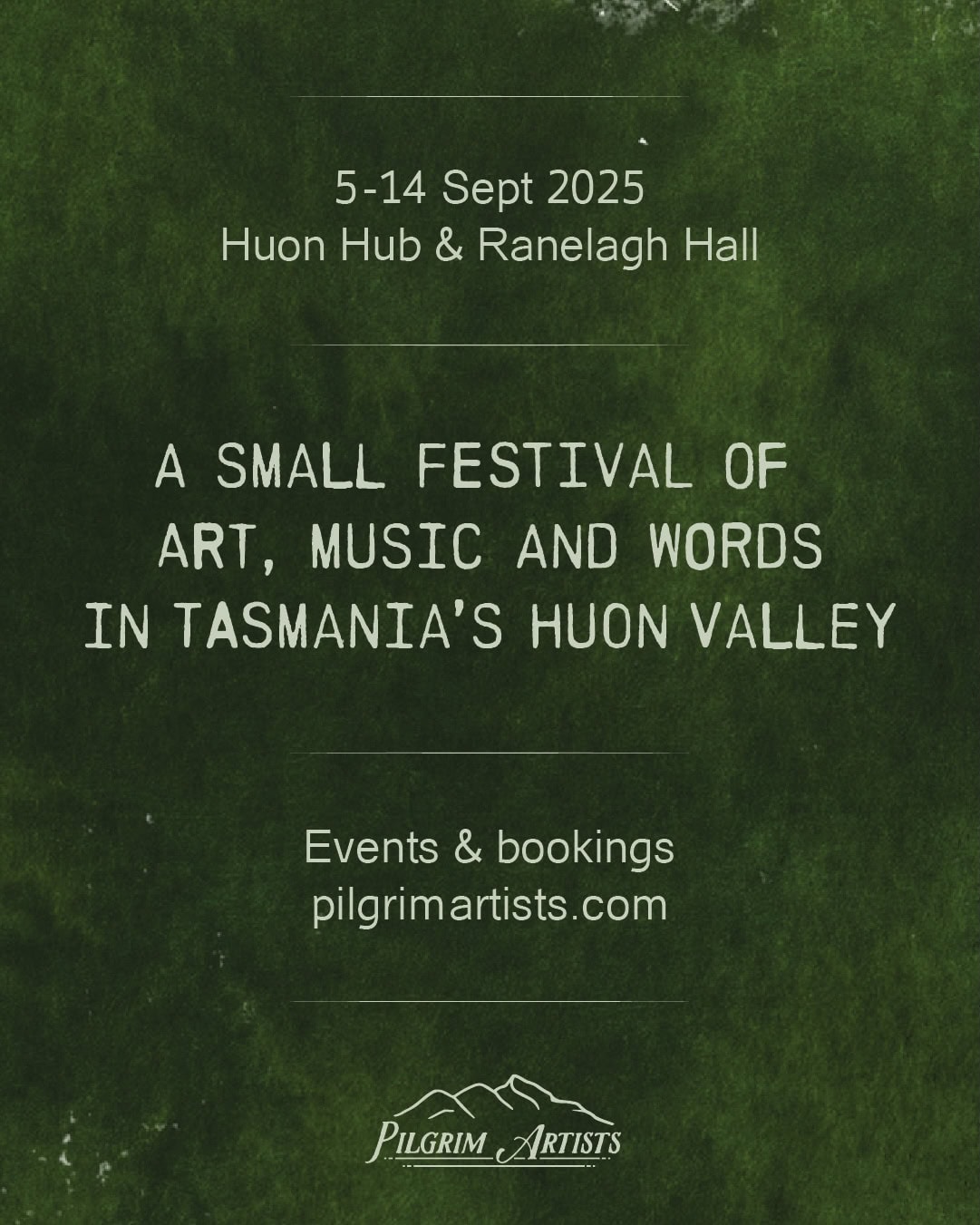2025 Literary Finalists — Pilgrim Artists Festival
For our 2025 Pilgrim Artists Festival — our 8th small festival of art, music, and words — we invited writers young and old to submit works of fiction, non-fiction, and poetry on the theme: Remember
Below you'll find pieces by our adult finalists (in alphabetical order by surname); you can enjoy reading our youth finalists at this link; and if you'd like to compare with past winners, feel free to visit 2023, 2022, 2021 and 2019.
Writers for the 2025 festival had up to 500 words to explore our theme (Remember) from a Christian faith perspective. All entries were judged anonymously by a team of curators, who chose three finalists in each category and age bracket, for you the public to select a winner at the festival.
Adult winners are awarded the following prizes as well as a $100 Wandering Bookseller gift voucher:
-
- In fiction, the $250 W.R. Gingell Prize for Fiction;
- In non-fiction, the $250 Christina Baehr Prize for Non-Fiction; and
- In poetry, the $250 Wandering Bookseller Prize for Poetry

Fiction
Adult Finalists
Together
By Adrianna Hall
“We had steak on the Thursday!” His wife had that stubborn tilt of her chin.
“Hmph,” he said, scratching his motley scalp. “It was a Tuesday. We had chicken that Thursday, after babysitting the grandkids, like we always do. Come on. We’ll miss the sunset.”
They shuffled from the path onto the granite foreshore. In the distance, waves rushed through their well-worn crevice and whoomphed up the blowhole, spraying white mist high in the air.
“Of course it was the Thursday.”
She nodded to herself then braced, one hand clutching her hiking stick as she supported her bung knee. Her other hand laced through his – soft and smooth, despite the wrinkles, and so familiar it was as if he held his own.
Once, the brush of her hand had brought tingles as their fingers tangled together, delighting in the touch of another. Now, his hand sweated after holding hers for so long. He tried to adjust his stubby, leathered fingers around her slender ones, but they slipped back into the accustomed arrangement, two parts of a whole, woven together. Warmth glowed inside him, as delicious as his morning cup of English Breakfast, and he squeezed her hand.
Her handbag strap dug into the well-worn groove on his bony shoulder. He shifted it to a more comfortable position. Currently a sequin-studded thing, the handbag shone as brightly as his wife.
“Do you really need all this stuff in here?”
“You know I do.”
“Did you bring the kitchen sink too?”
She wrinkled her nose at him.
The breeze picked up, carrying the salty sea tang to him as the waves danced in the distance, hissing and rushing and crashing.
His wife shivered. “Can I have my cardigan please?”
“This blue thing?” he asked, rummaging.
“No, the lime one. Here – I’ll get it.”
His shoulder sighed in relief as she grabbed the bag and dug past the water bottle, diary, small pharmacy of tablets, pen, band aids, and other mysteries within. Last week his granddaughter had complained of being cold and hungry and his wife had instantly produced a muesli bar and wrapped her in that same cardigan. Her cute smile as she walked along, munching, arms flapping in sleeves that hung to her ankles, turned his eyes glassy.
He frowned. Definitely the Tuesday we had that steak.
The sun sank lower, and the gilded waves calmed for a moment. He sighed with contentment.
“Ready?” The word no longer burst with impatience.
Hands interwoven, they ambled forward. His fingers brushed against the golden band, as worn from the years as their bodies. The memory of slipping it on her finger was as splendid as the scene before them. The blowhole whoomphed again, a large one this time. Icy spray misted his face, but he left it, not bothered by its sting.
“It was our anniversary that Wednesday. We had steak the day after.”
“Perhaps it was the Thursday.” His eyes twinkled as he kissed her fingers and smiled.
Dust
By Jacob Kewley
Not far from where I live, a crawdad has made its home inside the carcass of a fish.
Baba said the crawdads came from overseas back when he was a boy.
Once it snapped at me and I had to ask Mama for ice.
I pass the fish again today, walking to the school. Off the coast, to my left, the man in black hovers a foot above the waves. I pass ruined homes and see a rabbit in the street, matted and ripped – stuffing oozing gently through a ragged tear in its side. I stare into the beaded eyes and wonder if it remembers life before the sky was dark and the black-hooded man floated among us.
Beyond the houses a sign lies in the dust.
It used to say MILK.
Now it says ILK.
I try to remember what milk tasted like cold, when the generators ran and the fridge hummed. Memory is slippery. Sometimes a story arrives with the dust and squats until it’s hard to know what was true first.
I arrive at the aid centre and take my seat. Hala writes letters along the board’s broken edge, carefully, as if the chalk might awaken something.
“Writing is how we remember,” Hala says.
I wonder who decides which memories stay. Teta used to say the mind is a market where everyone is shouting their price. She left us that night, quietly – her stall in the marketplace now empty. He was on the balcony next morning, studying our laundry.
At lunch they give us bowls with more water than soup. I sit against the cool wall with Maya from next door. Sweaty soldiers pass to their beds out back with boots unlaced and beards unkempt.
Then the planes arrive.
First a strange silence, stretching itself tight. Then that cry, the sky tearing its throat apart. Hala drops the chalk. She doesn’t say get down. She pushes Maya and me under a table, our bowls tinkling away. My heart hammers in my ears. Windows spit glass. The chalkboard tips and breaks. I see him through the dust. He floats down the aisle between cots and boxes. He stops, then turns slowly.
The wall buckles, and the ceiling comes down. Maya claws my arm. Someone is shouting. Counting. I try to count with them, but the numbers slide. He is above us now, impassive, as if he has all the time in the world.
There is a pain in my side.
Hala’s hand finds the back of my head. The dust learns to breathe. In the hush, I think of the fish and the crawdad inside – how it made a home in the hollow and made the carcass move again. I think of Baba’s stories, Mama’s ice, Teta and her marketplace, of signs that say ILK.
The man in black inclines, almost a bow. The sky tilts. The dust settles on our lips like henna.
And then I understand. It isn’t for me to remember, but for you.
The Queen Speaks
By Suzannah Rowntree
“The king has come home,” you all say when the arrows are spent, and the bodies are cooling, and the blood thickens, fly-speckled, on the floor of the hall. “Won’t you rejoice with us? Don’t you remember?”
Yes, I remember. Who better? I am his wife, after all.
I remember the king who left us twenty years ago for the Trojan war: how he yoked ox and ass together, feigning madness, that perhaps he might be left in peace to till the earth. I remember that to test him they put his son, his only son, in the furrow before the plough: that for a moment I thought he would not turn aside, that rather than slay other men’s sons he would sacrifice his own.
“How tall and fair your husband is,” you say. “How blue-eyed, how golden-haired!”
How could you forget? My beloved was dark, and there was no beauty in him, that he should be desired. The man who has returned from across the sea has not even the same features as the one I love. Twenty years is a long time, but it will not suffice to blot out the memory of my husband’s slight stature, his black hair and sun-dark skin.
“Unnatural woman, do you not pity him?” you ask. “Have you not heard the tale of his sorrows?”
Sorrows, indeed! Tall tales the stranger has brought home: how he has outwitted the wise, and slain giants, and escaped monsters; how queens and goddesses have unclasped to him their silver girdles. My husband the king let the mouths of others praise him, and not his own. There are queens and goddesses without number, but I was his chosen one, his dove. How dare you say I do not remember him!
“Ungrateful, unfaithful, more treacherous than the wife of Agamemnon,” you name me, because I do not exult over the corpses he has made of my maids, or hail him for delivering me by a vicious slaughter from my suitors. “Snake of a foreigner, turncoat and spy,” you say; and when the stranger condemns me to prison, you are eager to comply.
You do not honour my husband, for all that everything you do is in his name.
You who were his servants, you who were his friends: how could you forget him so soon, so soon? You, Antinomos, the stranger has given high office. You, Archelaos, he has given broad lands and privileges. You, Antixenos, he has given dungeons and keys. And no profit comes to you by remembrance.
I will endure your taunts. There are yet thousands in the land who have not bowed the knee to the stranger, who will not confess that he is lord.
And still I have hope: that one day again I will hear his voice. Rise up, my love, my fair one, and come away. In the guise of a king, or in the guise of a beggar, let him come: for I will know him.
I will remember.

Non-Fiction
Adult Finalists
A Woman Remembers
By Anna Brotherson
I am a mother of four, but people will see
me as a mother of three.
I carried her in my body, but now I don’t,
and that “not” is something I feel
every time I get dressed,
at every stage of my cycle,
at every meal where I don’t feel
nauseous,
in every conversation with someone
who never knew she existed,
in every conversation with someone
who knew she existed,
but they’re talking about
something else.
I feel her loss almost all the time.
And I feel alone in it.
The kids barely mention her anymore.
My husband presses on with work. He
doesn’t cry about her anymore.
I feel the loneliness of intense grief which
is invisible to everyone but God.
People forget, but I don’t forget.
My baby who died was due to be born on 5th April. In March, I asked my family to mark the date in their calendars. Please remember it, I said. I need you to remember it. I need you to remember that my fourth child, your niece or nephew, your tenth grandchild—they would have been born that day. It would be so nice if you remembered her, and remembered me, on that day. It would mean such a lot.
On the morning of 5th April, my sister-in-law Cath texted me. Just Cath; no-one else.
When I received silence from the others, I was disappointed. I don’t know how I could have been more clear. It hurt.
By the second anniversary, even my husband needed reminding.
I have felt peeved at my loved ones over this; but irritation has only made me feel more lonely. It has paid to let go of the expectation and hope that they will guess (or remember) what I want from them. It’s harder than I had imagined for people to understand how a mother’s grief can sink you so deep and so long. It’s hard for them to imagine, even if you try your best to help them imagine.
I am glad to have God, who always hears, always remembers, always applies his perfect imagination. And every year, on 5th April, I get one beautiful message from Cath. Just Cath. I am grateful beyond words. One person, one persistent rememberer, is enough for me to get along with.
Five years have gone by since that first April 5th, and this year even I, mother, forgot that special date. I opened my diary to check the morning’s tasks and oh! It’s today. It’s time to make the ritual birthday cake again, but oh! I haven’t bought the ingredients. It’s time to be sad; but I haven’t left an hour free between appointments today.
And actually, I don’t feel that sad right now. But I should be sad. Shouldn’t I?—My thoughts are interrupted by the buzz of my phone.
Cath has remembered.
What do I make of this? I just sit with it. I store the curiosity in my heart.
Seven
By Amy Isham
The cherry-plum tree is large enough for a cubby. The planks that stretch between two trees are spattered with plums, their stones exposed. We play. I can’t remember what we played, but it’s brilliant and you’re my best friend. Your dark blonde hair hangs in a neat braid down the centre of your back, mine is always messy and uncombed. You like it because you say I look like Anne of Green Gables. Your hair is beautiful and smooth to touch.
When you go into the chook pen, you always hold one of them in your arms and purr like a cat. They gather around you, and you scatter grain. When I enter the pen, they scatter like flies. I am loud and impulsive. I forget to close the gate properly. I want to hold them in my arms too; I try to purr but I get distracted and talk loudly. I swipe at them and touch their feathers with my fingertips. It is the closest I will get to holding them like you do.
We’re playing near the lemon tree when your mum calls you. You have to go inside and we’re both sad. When you’ve peeled the potatoes, you can come back. Later we jump on the trampoline. We can see our reflections in the window of the shed, we look “skinny, normal and fat” depending on where we stand. You start to sing.
“Well, I’m skinny, normal and fat
Yes, I’m skinny, normal and fat
If I’m skinny, normal and fat
I’m fat normal skinny - skinny normal fat”.
Later, I made us record this song on a cassette recorder, because it’s wonderful. I still remember the tune. Our recording is crackly and poor quality, and I can still hear your laughter.
In the kitchen, there are lots of old ice cream and margarine containers stored in baskets under the cabinet. Bowsie the cat is on the windowsill. I worry she will fall. We are two stories above the trampoline and the chooks and the lemon tree. The radio plays “Puff the Magic Dragon” and we’re excited. The next song was good too, but I can’t remember what it was. Your father croons along and he has a smooth voice. Your mother says, “Oh John” and we laugh.
I have to go home soon, but I don’t want to leave. So, we use the rotary phone to call my parents. The potatoes are dry, and the peas shriveled. We have dry chocolate cake with milk for dessert. I love you but I have to go home.
You live in Devonport now and I live in St Kilda. I miss you.
The Colbert Questionert
By Ingrid Vanderstoep
I like the promise of the Colbert Questionert. Fifteen questions calibrated to reveal someone’s soul. I know Colbert is joking as he leans toward Joaquin Phoenix and asks, “Are you willing to be fully known?” But I lean in.
It starts easy. What is the best sandwich? Kate Winslet likes grilled cheese. George Clooney likes ham. Robert De Niro likes whatever sandwich he’s eating at the time. They relax. They think, “Oh, this kind of question. I’m safe.”
But after “scariest animal?” and “apples or oranges?” Colbert asks them about the first concert they attended. They remember their mothers. “My mum wouldn’t want me to say this but…” Joaquin Phoenix squirms. Matt Damon is a child again singing with his mother, “We are an anti-nuclear people and we’re singing, singing for our lives.”
When Colbert asks, “Where do we go when we die?” they are already wondering where their mothers have gone.
I am acquainted with death. I knelt on the linoleum floor of a windowless hospital room, lay my head on my grandmother’s pillow and whispered in her ear, “I love you… I love you… I love you…” while her breathing rattled away to nothing. When she was quiet, I looked up and asked, “Do we stay?” I wanted to hold her. But my uncle said, “What for? There’s no point now.” Stepping out of the hospital the sky was Streeton blue, and the gums were torn with lorikeets. I knew she was alive.
If you could only listen to one song for the rest of your life, what would it be?
Colbert doesn’t answer the questions himself (though I know he prefers apples—he spreads them with peanut butter). But I think his “one song” might be Slip Sliding Away by Paul Simon. When interviewing Simon, Colbert mentioned listening to Slip Sliding Away outside the Winn Dixie while waiting for his mother.
“When she came out, she got into the front seat and listened to the lyric:
I know a woman became a wife
These are the very words she uses to describe her life
She says a good day ain’t got no rain
And a bad day is when I lie in bed and think of things that might have been”.
Colbert said he heard his mother gasp. She said, “That’s true.”
He thought, “What don’t I know about her life?”
What is your earliest memory?
I’ve heard my daughter Eden say that her earliest memory is of lying on the bottom bunk and needing something and calling out and knowing that I would always come. Stories like that frighten me. I know I won’t always come. Why do mothers get confused with God?
What number am I thinking of?
When Stephen Colbert was 10 his father and two brothers were killed in a plane crash, leaving him alone with his mother.
Perhaps it’s 3? Or 2.
Describe the rest of your life in 5 words?
Somebody must love us all.


Poetry
Adult Finalists
Daffodils
By Naomi Leach
I will be forgot one day soon
The daffodils are yet in bloom
But soon will not be seen above the earth.
Yellow and gold and white they bloom
Cheerily face their coming doom
To be forgot in light of summer’s birth.
Who will remember when I’m gone
The jokes I told, the light I shone?
I’d hoped to be a writer, be a wife.
The part I’ve played will carry on
The fruit I’ve borne, though I’ll be gone,
Will still bear fruit in someone else’s life.
And then one day I’ll be forgot
With those who loved me living not
Except in Him in whom we’re all alive.
Like one who blooms and then does not
The memory fades and I’m forgot.
My fate: the fate that waits a human life.
Mind’s Eye
By Jennifer Stowe
We planted pines when I was small
About fifteen in all.
They were scattered along our property line
They would mark the passage of time.
Fifteen trees for fifteen years to come
He would not live to chop them all
He cut down a few, more than one
But the rest grow tall, tall.
Standing among those left behind
I hear clearly in my mind
The chatter of my dad and me
Planting fifteen Christmas trees.
Renunciation
By George Vanderstoep
I built a world around me,
Built it of all I knew:
A shimmering dream of flickering screens
Lit up in palest blue;
And all my heart’s desires
Were reflected in the glass,
So in my grotto I forgot
The glorious green of grass—
Until my blue world foundered,
And its wheels no longer spun.
I left behind that crystal mind,
Crawled out into the sun.
All works on this page are copyright their original authors. The Pilgrim Hill Association Inc has been granted a permanent but non-exclusive right to publish these works. We hope you enjoy them.
Special Thanks
We are so very grateful to W.R. Gingell, Christina Baehr, and The Wandering Bookseller for sponsoring our adult literary prizes.


